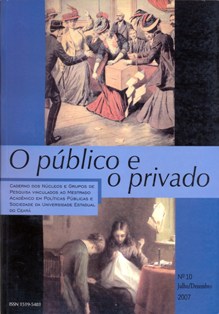Políticas de Patrimônio
entre a exclusão e o direito à cidadania
Palavras-chave:
Inventário Nacional de Referâncias Culturais - Identidade CulturalResumo
A preocupação neste texto é esboçar algumas considerações sobre o patrimônio denominado imaterial , sob a ótica das políticas públicas patrimoniais, consideradas a título de análise como políticas de inclusão. Partindo do pressuposto de que a dinâmica e a inovação são fatores constitutivos de todo o processo patrimonial, a identificação de bens de referência cultural para registro, pertencentes aos setores não hegemônicos (indígenas, negros, populações rurais, imigrantes, etc.), representa uma mudança significativa no entendimento e na escolha dos alvos dignos de serem pesquisados. Numa sociedade como a brasileira, altamente hierárquica e desigual, a conceituação do patrimônio imaterial defendida pelos mentores da política de registro pressupõe o reconhecimento de bens de referência cultural que em muito extrapolam os escolhidos pelos grupos hegemônicos para representar o que se idealiza como patrimônio cultural brasileiro. Essa luta desigual travada no campo do patrimônio cultural exige o questionamento sobre a legitimidade do processo, no que diz respeito ao direito à cidadania das populações subalternas e à possibilidade de fazerem parte do que se entende como patrimônio cultural brasileiro.











